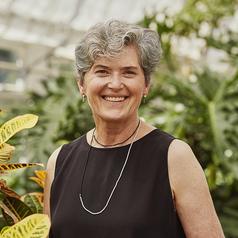
Beth Parker
Professor, School of Engineering, University of Guelph
Dr. Beth Parker is a Professor in the School of Engineering at the University of Guelph, and Director of Morwick G360 Groundwater Research Institute. She completed her PhD in Earth Sciences at the University of Waterloo in 1996 and her MSc in Civil and Environmental Engineering from Duke University, in 1983. She holds a Senior Industrial Research Chair in Groundwater Contamination in Fractured Media from NSERC. She specializes in high-resolution field methods for groundwater system characterization and uses innovative characterization methods to improve monitoring system design, contaminant detection, and prediction of transport mechanisms in complex flow systems including fractured rock.
Less ![]()
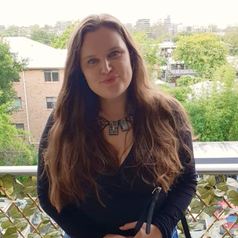
Beth Spacey
Associate Lecturer, The University of Queensland
I am a historian of the crusades and the religious cultures of Europe and the Eastern Mediterranean in the central Middle Ages, with research expertise in the Latin narrative histories of the crusades. I have published on medieval ideas about miracles, masculinities, and nature in crusades sources. My first book, The Miraculous and the Writing of Crusade Narrative, was published by Boydell & Brewer in March 2020 and will be released in paperback in March 2023. I am currently an Associate Lecturer at the University of Queensland, where I have been working since 2018. I have previously worked as a Teaching Fellow in Medieval History at Trinity College Dublin and the University of Birmingham. I completed a PhD in Medieval History at the University of Birmingham in 2017.
Less ![]()

Beth Stone
Lecturer, social policy, University of Bristol
My research focus is the lived experience of homeless adults who identify as autistic.
My Doctoral research involved narrative research with autistic adults experiencing homelessness. As part of this project I conducted an extensive scoping review on cognitive impairments in homeless populations.
I am particularly interested in the life trajectory of autism, the difficulties surrounding diagnosis in adulthood, and the socio-economic disadvantages associated with being ‘on the spectrum’.
Less ![]()
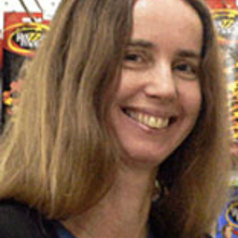
Beth Webster
Director, Centre for Transformative Innovation, Swinburne University of Technology
Professor Beth Webster is the Director of the Centre for Transformative Innovation at Swinburne University of Technology. Her area of study is the economics of how knowledge is created and diffuses through the economy. On these topics alone she has authored over 100 articles in outlets such as RAND Journal of Economics, Review of Economics and Statistics, Oxford Economic Papers, Journal of Law & Economics and Cambridge Journal of Economics. She has been appointed to a number of committees including the Lomax-Smith Base funding Review; CEDA Advisory Council; the Bracks Automotive review; the Advisory Council for Intellectual Property; the European Policy for Intellectual Property Association; the Economic Society of Victoria and the Asia Pacific Innovation Conference. She is also holds honorary research positions at the Universities of Melbourne, Oxford and Tasmania.
She has a PhD (economics) from the University of Cambridge and economics degrees from Monash University.
Less ![]()

Beth Younger
Associate Professor of English & Women's and Gender Studies, Drake University
A Southern California native, I earned my undergraduate degree in English from Humboldt State University in Northern California. I then moved to the deep south where I completed my Ph.D. at Louisiana State University. My research interests focus on popular culture, young adult literature, feminist theory, and women's studies.
I have an ongoing obsession with horror films, which began when my brother forced me (at age 12) to watch George Romero’s Night of the Living Dead. Along with my love of zombies and powerful women in horror films, I am continually intrigued by the amorphous classification(s) of cultural productions as either "high" or "low" forms of art. Is it "literature" or "fiction" or a "trashy novel?" Interrogation of these troublesome labels is an ongoing preoccupation.
Less ![]()
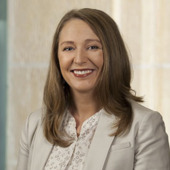

Bethan Jones
Research Associate, University of York
Bethan Jones is a Research Associate working on the Screen Industries Growth Network project at the University of York. She has published extensively on gender, digital media and popular culture, focusing on audiences and fans. She is currently working on a monograph about The X-Files, and the darker side of fandom.
Less ![]()

Bethanee Bemis
Museum Specialist, National Museum of American History, Smithsonian Institution
Less ![]()
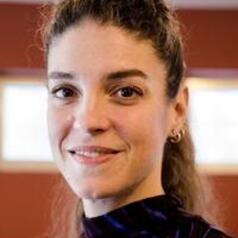
Bethanie Carney Almroth
Associate Professor, Department of Biological and Environmental Sciences, University of Gothenburg
Professor, researcher, ecotoxicology and zoophysiology
► RESEARCH
My research focuses on the environmental effects of plastics and plastic-associated chemicals, using different species of fish for study. I use biochemical and physiological methodologies to understand how exposure to microplastics, plastic additives, and environmental chemicals affect fish via different exposure routes. I am specifically interested in oxidative stress mechanisms and their importance following exposure to toxic substances. My research group is included in the environmental science focus area at the Dept of Biological and Environmental Sciences.
Other research projects in which I am involved address usage and spread of plastics in society and the environment, as well as consequences of exposure to plastics and associated chemicals.
• Weeding out the toxins from recycled plastics
• The plastic pollution challenge: a global social-ecological perspective
• Limnoplast
• Less Space for Plastic
RESEARCH CENTERS
• CeCar – The Center for Collective Action Research
I also work within CeCar, an interdisciplinary project aimed at solving environmental problems by inducing large-scale changes in society. Focus here lies in communication with the general public, industry, and policy makers and addressing problems associated with plastic consumption and possible paths towards mitigating problems.
• FRAM – Future Chemical Risk Assessment and Management Strategies
I also work with other experts within the FRAM project addressing risk assessment of chemicals and chemical mixtures used in plastic projects and relevant chemical legislation.
► TEACHING and ADVISING
As an associate professor at the university, a portion of my time is dedicated to undergraduate and Master’s level courses. I am the course leader for an introductory course in the form and function of organisms as well as an interdisciplinary introductory course in environmental science. I also teach ecotoxicology with focus on physiological effects and biochemical toxicity. In addition, I teach a course for vocational teachers aiming to include issues of sustainable development into their programs.
I am also active as an advisor for PhD candidates and Master’s students, guiding them in their independent research projects. This research is often connected to ongoing research projects within my group.
Less ![]()
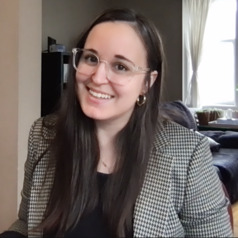
Bethany Berard
PhD Candidate, Communication and Media Studies, Carleton University
Bethany Berard is a PhD Candidate in Communication and Media Studies at Carleton University. Her research brings together visual culture and media theory, often with a focus on photography. She is the Assistant Editor of the Canadian Journal of Communication.
Less ![]()
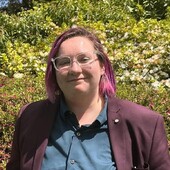
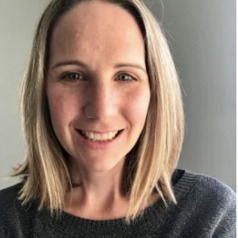
Bethany Devenish
Research Fellow, School of Educational Psychology & Counselling, Monash University
Bethany Devenish is a research fellow at the School of Educational Psychology and Counselling (EPC) at Monash University. Her research focus has been on programs that effect broader community and cultural change, to develop inclusive communities that promote positive outcomes for children and adolescents with disability, and/or from low socioeconomic homes or communities. Her PhD examined the pathways through which poverty can impact the outcomes of children and adolescents, evaluating a school-based program designed to promote student voice and agency within their community. She has collaborated with multidisciplinary teams both locally and globally to support delivery of culturally responsive, strengths- and evidence-based programs for children, adolescents, families, schools, and other formal and informal community actors. Bethany has strong experience in knowledge translation and a passionate interest in child voice, including within research, and system change. Bethany is excited about continuing and progressing her research to see inclusive communities that promote positive outcomes and active participation of all children become a reality.
Less ![]()
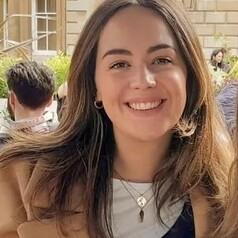
Bethany Rebisz
Lecturer in the History of Modern Africa, University of Bristol
I am a social historian of modern Africa, with a particular focus on gender and women's history. My interests include African oral histories, histories of humanitarianism, welfarism and development, counter-insurgency warfare, colonial violence, and digital humanities.
My current book project explores the relationship between colonial counter-insurgency tactics and international humanitarianism in the context of the Mau Mau insurgency in Kenya, 1952-1960. It uses villagisation, a counter-insurgency measure enforced during the campaign to administer tighter control over the movement of civilians, as a site to interrogate the relationships between humanitarian organisations, the colonial administration and the displaced indigenous women and their children. The project analyses the supposedly reformative practices deployed by the British colonial government and external actors, like the British Red Cross Society, in response to women and girls suspected of supporting forest fighters. These practices publicly endorsed ideas of African women’s advancement and development. While the colonial government projected a reformative discourse for their approach to women and children, this research shows that this process was gendered and inherently violent in practice. Villagisation in this campaign operated as a tool to subdue a specific demographic of the Kenyan population suspected of fuelling anti-colonial action: women and girls.
Less ![]()
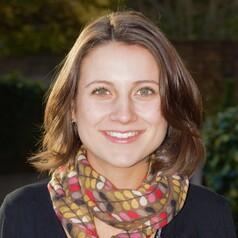
Bethany Taylor
Research Fellow, University of Sheffield
I am a Research Fellow based at the Mesothelioma UK Research Centre, University of Sheffield. My research interests are communication between patients and health care professionals, relationship-centred care, clinical trial participation and employing creative and participatory approaches to enable patient and public involvement. I am enthusiastic and committed to conducting research to improve the experiences of mesothelioma patients and their families.
Less ![]()
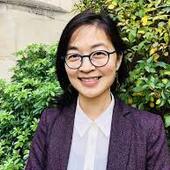
Betina Ip
Royal Society Dorothy Hodgkin Research Fellow, Nuffield Department of Clinical Neurosciences, University of Oxford
Less ![]()
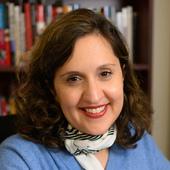
Betina Cutaia Wilkinson
Associate Professor & Associate Chair of Political Science, Wake Forest University
Less ![]()

Betsy Huang
Professor of English, Clark University
Betsy Huang is Professor of English at Clark University. She served as Associate Provost and Dean of the College from 2019 to 2024, as Director of the Center for Gender, Race, and Area Studies from 2017 to 2019, and was Clark’s inaugural Chief Officer of Diversity and Inclusion from 2013 to 2016. She held the Andrea B. and Peter D. Klein ’64 Distinguished Professorship from 2018 to 2023. She teaches and researches in the overlapping spheres of ethnic American and Asian American literature, genre fiction and theory with an emphasis on science fiction, and ethnic studies. She is a two-time winner of Clark University's Outstanding Teacher of the Year Award.
Dr. Huang has published four books — a monograph, Contesting Genres in Contemporary Asian American Fiction (Palgrave, 2010), and three co-edited essay collections: Asian American Literature in Transition: 1996-2020 (Cambridge University Press, 2021); Diversity and Inclusion in Higher Education and Societal Contexts (Palgrave Macmillan, 2018); and Techno-Orientalism: Imagining Asia in Speculative Fiction, History, and Media (Rutgers UP, 2015). Her work has appeared in The Cambridge Companion to American Horror, The Cambridge Companion to Asian American Literature, Journal of Asian American Studies, and MELUS: Multi-Ethnic Literatures of the U.S..
Less ![]()
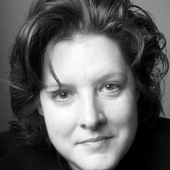
Betsy Pudliner
Associate Professor of Hospitality and Technology Innovation, University of Wisconsin-Stout
Less ![]()
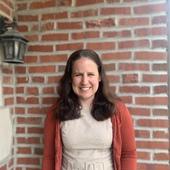
Betsy Sinclair
Professor and Chair of Political Science, Washington University in St. Louis
Less ![]()
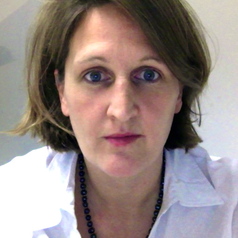
Bettina Friedrich
Academic Researcher, PhD Supervisor, University of Sydney
Dr. Bettina Friedrich is a psychologist and researcher.
Bettina has worked in the in the research areas of mental health and mental health stigma at different international academic research departments: USA (UCSD), Australia (USyd), England (King's College London) and Germany (University of Würzburg). In addition to this she has worked for a year as a free-lance journalist for the Braunschweiger Zeitung. Her main areas are Clinical Psychology, Media Psychology and Cross Cultural Psychology.
She is particularly interested in social-psychiatric questions in health communication. She is investigating for example how we use media to communicate about mental health and how this impacts on mental health related stigma and self-stigma. She has also worked on the evaluation of Time to Change, the national mental health campaign of England which is the biggest of its kind world-wide.
Bettina is also involved with the Global Anti Stigma Alliance (GASA), a network of 120+ stigma researchers and health educators from five continents. She produces the quarter-annual newsletter for GASA.
Bettina obtained her PhD from the University of Glasgow in Scotland (Department of Psychology).
Less ![]()
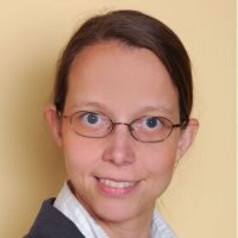
Bettina Grün
Associate Professor, Institute for Statistics and Mathematics, Vienna University of Economics and Business
Bettina Grün is an Associate Professor in the Institute for Statistics and Mathematics at WU Vienna University of Economics and Business. She holds a PhD in Applied Mathematics from the Vienna University of Technology and a Venia Docendi in Statistics from the Johannes Kepler Universität Linz. She is interested in improving model-based clustering methodology and implementing statistical software packages for R, an open-source environment for statistical computing and graphics. In addition she enjoys applying statistical methods in a wide area of applications including economics and business to help extract useful information from data.
Less ![]()
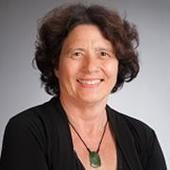
Bev Lawton
Professor, Te Tātai Hauora o Hine – National Centre for Women’s Health Research Aotearoa, Te Herenga Waka — Victoria University of Wellington
Less ![]()
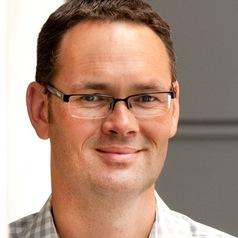
Bevan Catley
Professor, School of Management, Te Kunenga ki Pūrehuroa – Massey University
Bevan is Professor of Work and Organisation in the School of Management at Massey University. He is one of the co-founders of the Healthy Work Group – a multidisciplinary team of researchers interested in psychosocial factors in workplace health and safety. Bevan’s primary research focus is on workplace bullying, psychosocial risk and wellbeing and he has published extensively on these topics. Beyond Massey, Bevan has served on the boards of the Australian and New Zealand Academy of Management and the International Association on Workplace Bullying and Harassment.
Less ![]()
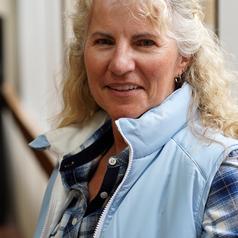
Beverlee Ziefflie
Instructor, Nursing, Saskatchewan Polytechnic
I have a Masters in Adult Education and have taken a recent interest in research. My research has focused on frontline nursing during the COVID-19 pandemic, the experiences of older adults during the pandemic, mood and loneliness in older adults and the impact of a phone intervention, and joy and future planning in 100-year-old adults.
Less ![]()

Beverley Henry
Adjunct Associate Professor, Queensland University of Technology
Dr Beverley Henry is an Adjunct Associate Professor at Queensland University of Technology, and provides consulting services to government and agricultural organisations and is or has previously been a member of several international committees and advisory groups.
Areas of expertise and research include climate change and the land sector with a focus on quantifying and managing greenhouse gas emissions and carbon sequestration in vegetation, soils and livestock production.
Less ![]()
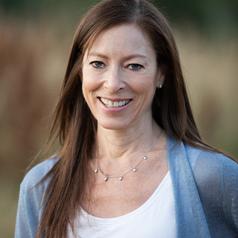
Beverly Kingston
Director and Senior Research Associate, Center for the Study and Prevention of Violence, University of Colorado Boulder
Beverly Kingston, Ph.D., is director and Senior Research Associate at the Center for the Study and Prevention of Violence at the University of Colorado Boulder. Her research focuses on addressing the root causes of violence by creating the conditions that support healthy human development throughout the life course. She has designed, conducted and led several multi-million dollar school and community initiatives and research studies that focus on implementing a comprehensive public health approach to violence prevention. Dr. Kingston has published articles on using comprehensive public health models to address youth violence, school safety, neighborhood social factors, and health and the built environment.
Less ![]()
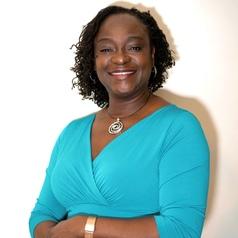
Beverly-Jean Daniel
Associate Professor, School of Child and Youth Care, Toronto Metropolitan University
Dr. Daniel is currently an Associate Professor at Toronto Metropolitan University in the Child and Youth Care Program. In this role, her research focuses on the factors that foster positve racial identity amongst Black youth; the role of Child and Youth Care Practitioners in supporting children who have been taken into and aged out of care. More recently her research examines patterns of suicidality amongst Black youth and young adults. In 2010 Dr. Daniel founded and developed the ground-breaking, strengths-based student support program called The Bridge, the first of its kind in any Canadian college or university. She continues to conduct research on Black student engagement and retention from pre-K to Ph.D.
Less ![]()

Bex Lewis
As Senior Lecturer in Digital Marketing, I have a particular interest in digital culture, and how this affects the third sector, especially faith organisations, voluntary organisations, and government behavioural campaigns. I moved to this position after five years involved with the CODEC Centre for Digital Theology, St John’s College, Durham University. At CODEC, I researched discipleship in a digital age, drawing upon over 130 voices from ‘the pew, the pulpit and the academy’ on the website http://bigbible.org.uk. My work included highlighting to the church the importance of engaging with digital technologies. Previous roles in academia include ‘Senior Fellow in Technology Enhanced Learning’ alongside temporary lectureships, web editorial work, and research projects (including into web accessibility and usability) at the University of Winchester and Interdisciplinary Research Officer at the University of Manchester.
I have been Director of social media consultancy Digital Fingerprint since 2001, whose clients have included third sector organisations such as Girlguiding, The National Archives and NCVO (via another agency), Christian organisations including The Church of England, The Methodist Church, and United Reformed Church, publishers including Lion Hudson and CPO, universities including ‘Organisational Development in Higher Education Group’ and The University of Limerick, and a range of small businesses, including anti-diet cause ‘Beyond Chocolate’, and involvement in the social media startup Super Fun Days Out.
I am regularly asked to write for a range of publications for a wide range of audiences, and often provide expert comment to the media. The Financial Times described my 2014 book Raising Children in a Digital Age as ‘sensible’ in a sea of scare texts around the topic of children and the internet. I have been on flagship shows such as The One Show (BBC One), Steve Wright in the Afternoon (BBC Radio 2) and BBC News, whilst local and specialist media frequently asks for comment or opinion pieces on aspects related to digital culture.
Less ![]()
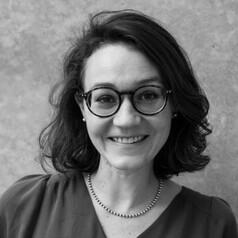
Bez Sea
Associate Professor, Université de Montpellier
Dr. Sea Matilda Bez is an associate professor at Montpellier Management Institute (University of Montpellier). She has been involved for three years in the project steering committee in the Horizon 2020 project DiHECO specialized on digital platform in health. She has published several papers in academic journal on patient feedback platform, coopetition, open-innovation and artificial intelligence.
She completed her Ph.D on “Strategizing and Managing Coopetition”. Her Ph.D. highlighted one of the most successful coopetitive projects: a coopetitive project that generated 100 billion dollars. The interested stake of her research describes how competitors can share their core competitive advantage transparently and even teach each other how to become stronger. It is counter-intuitive and in contradiction with the traditional strategic approach of keeping secret firms’ core competitive advantage. Then, she did a post-doctoral research with Henry Chesbrough at Berkeley California University on open –coopetition.
Moreover, in addition to academic activities, she has given invited presentations in front of innovation directors and alliance managers from the Silicon Valley or French companies, and be in charge of fostering a collaborative environment between the academic and practitioner for Avery Dennison, Enel, Tech Mahindra.
Less ![]()

Bhagya Subrayan
PhD Student in Physics and Astronomy, Purdue University
My current interests lie in modelling the stellar atmospheres using CMFGEN code of massive O stars and analyzing their spectra. I am also interested in understanding the circumstellar interactions of massive stars and their evolution. Also, I look forward to learning and exploring more about highly energetic events like supernovae, gamma-ray bursts while working with the time-domain astrophysics group at Purdue.
Education
Integrated BS - MS Degree
(Major in Physics and Minor in Chemistry)
Indian Institute of Science Education and Research (IISER), Thiruvananthapuram
Current position: Second year graduate student at Purdue University
Less ![]()
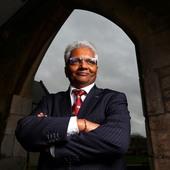
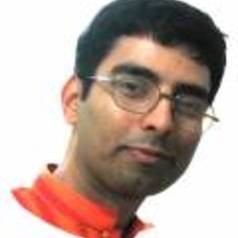
Bhaskaran Raman
Professor, Indian Institute of Technology Bombay
Research interests:
- Computer networks, Wireless and mobile networks,
- Protocol design & evaluation, Wireless measurement studies,
- Computing and communication system design for the developing world,
- System building and protocol design for embedded wireless sensor applications.
Less ![]()
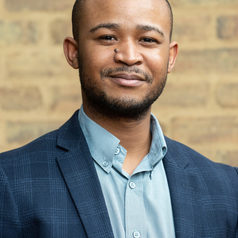
Bhaso Ndzendze
Associate Professor (International Relations), University of Johannesburg
I am an associate professor in the Department of Politics and International Relations at the University of Johannesburg. My research focuses on Africa’s international relations and regime types with a focus on tech, trade, and wars.
Less ![]()
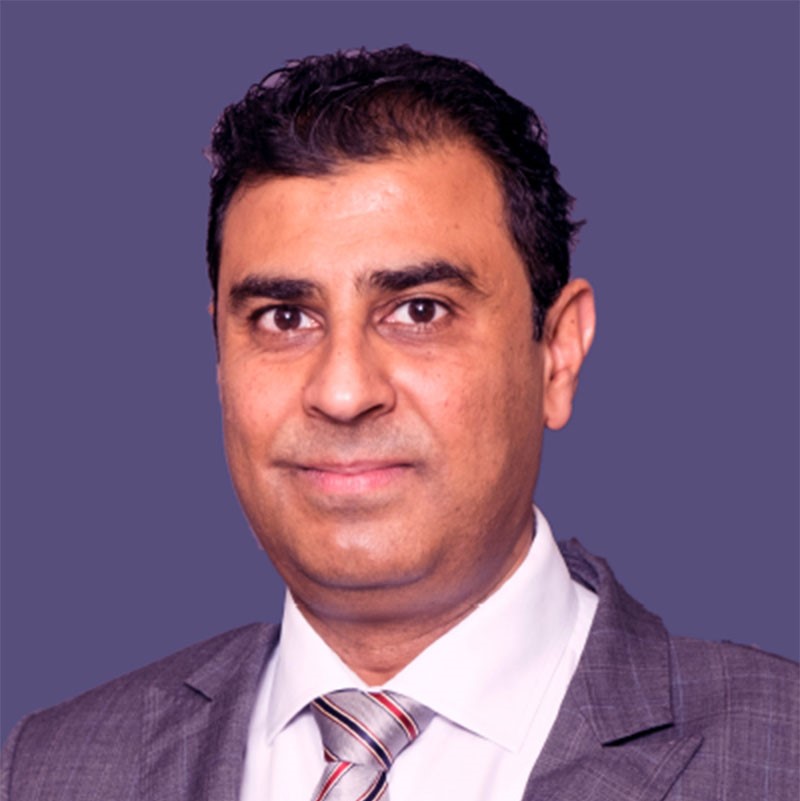
Bhavtik Vallabhjee
Head: Power, Utilities & Infrastructure at Absa CIB
Bhavtik C. Vallabhjee has over 25 years of Corporate & Investment Banking experience in South Africa, the Middle East and London. He has been engaged in structuring major project finance transactions in sectors such as power (incl. Renewable Energy), water, oil & gas, telecoms, transportation, healthcare & industrial projects. Bhavtik has worked on several deals in the Middle East and a number of African countries. He has focused on Renewable Energy since 2008 and has personally originated more than 30 projects. He is currently Head of Absa Corporate & Investment Banking Power, Utilities & Infrastructure team and works across conventional & renewable power technologies in Africa. He is based in London.
Less ![]()
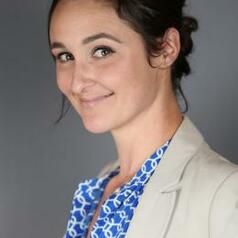
Bianca Baggiarini
Lecturer, Australian National University
I am currently a lecturer in the Strategic and Defence Studies Centre at the ANU and was previously a post-doctoral researcher at UNSW Canberra at the Australian Defence Force Academy. I am a political sociologist, and I study the sociopolitical and ethical impacts of autonomous and semi-autonomous systems in military, security, and defence contexts.
Less ![]()
- Market Data

















